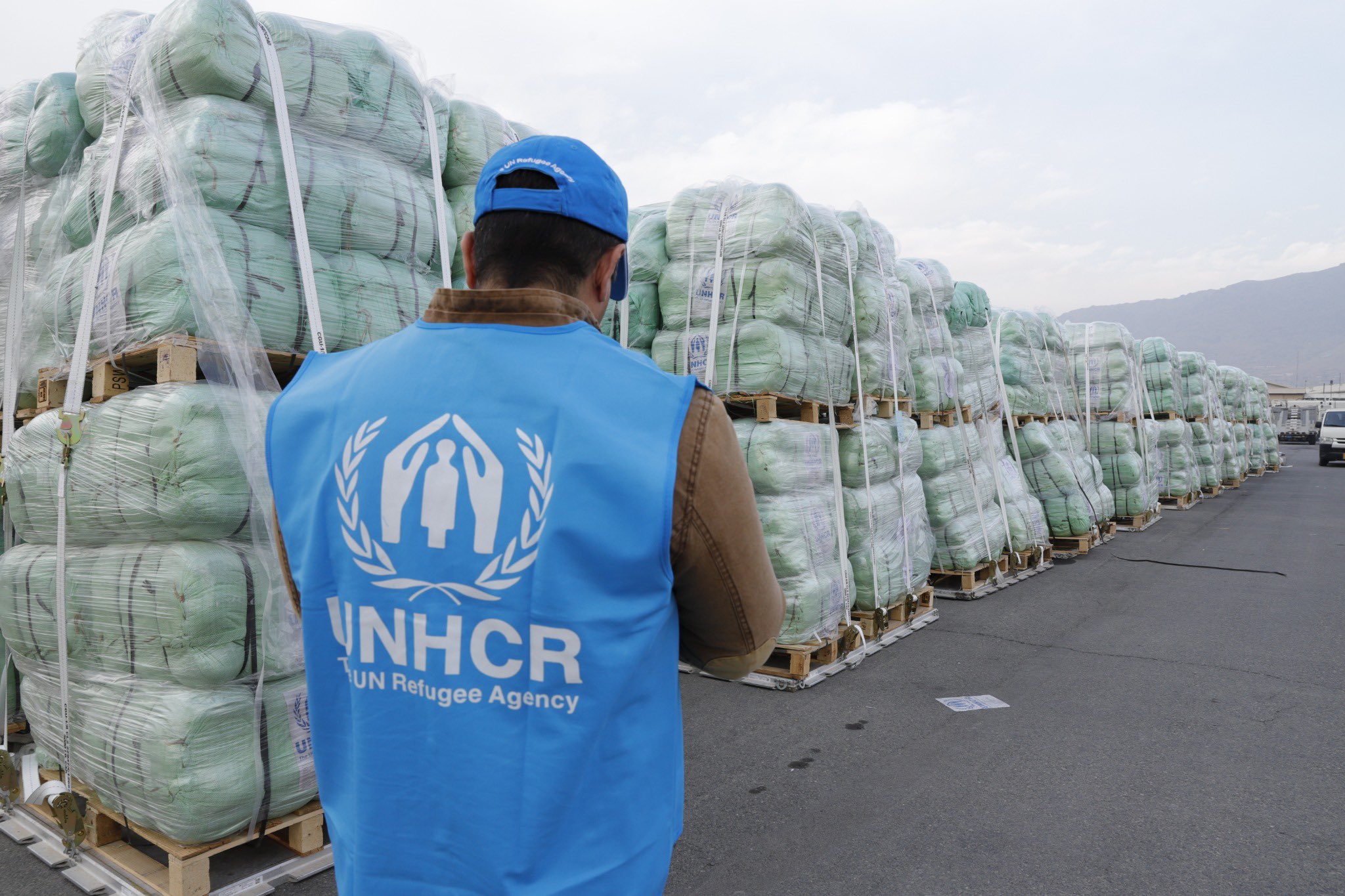Qatar helped deliver aid provided by the United Nations High Commissioner for Refugees [UNHCR] to Afghanistan.
Qatar Fund For development [QFFD] has signed an $8 million agreement with the UNHCR to support the agency’s global humanitarian efforts for the year 2021-2022, the UN entity announced on Tuesday.
The agreement was virtually signed between UN High Commissioner for Refugees Filippo Grandi and QFFD’s Director General Khalifa bin Jassem Al-Kuwari.
The UNHCR said the deal is part of Qatar’s commitment to support refugees and those who have been forcibly displaced from their lands.
“In light of the currently escalating challenges and record levels of forced displacements, this flexible funding will support UNHCR’s efforts to respond to the growing needs and emergencies around the world,” said Grandi.
Grandi added that the agency seeks to expand and strengthen its partnership with QFFD to ensure the support of “the most vulnerable refugees and host communities”.
The funding will enable the delivery of urgent aid wherever needed and will accelerate the UNHCR’s response to global needs of assistance to up to 84 million forcibly displaced persons.
Al-Kuwari said that the funding comes as part of his organisation’s support to the UNHCR’s “vital role in supporting refugees in places of multiple conflict”.
“Therefore, the Qatar Fund for Development and UNHCR share the same values…and to ensure that refugees are able to access their basic human rights such as shelter, food security, and quality education,” said Al-Kuwari.
According to UNHCR, the monetary support provided by the Qatari government and a number of other entities from the Gulf state exceeded $354 million in recent years.
Figures from the year 2020, released by the UNHCR, showed there were 82.4 million forcibly displaced people worldwide by the end of last year “as a result of persecution, conflict, violence, human rights violations and events seriously disturbing public order”.
Last year, 11.2 million people were forced to flee their countries due to either new, longstanding or resurfacing crises in comparison to 11 million in 2019.
Syria made up 6.8 million of the total reported by the UNHCR amid a war that has been going on for a decade, with the Bashar Al-Assad regime continuing to commit serious human rights abuses on civilians.
Aid delivery to Afghanistan
On the same day of the signing of the agreement, a Qatar Armed Forces plane carrying 24 tonnes of humanitarian aid provided by the UNHCR arrived in Afghanistan’s Kabul International Airport.
The aid delivery also took place in cooperation with the QFFD.
“This Qatari response comes with the aim of providing the urgent needs to Afghan people for winter preparedness, and for facilitating the work of the United Nations and international organisations to provide humanitarian aid and assistance to the Afghan people,” read a statement by Qatar’s foreign ministry.
Qatar has managed to evacuate over 70,000 Afghans and foreigners from the country since the Taliban took over in August, many of whom have been temporarily housed at a compound in the Gulf state while others were moved to the US Al Udeid Air Base before moving on to their final destinations.
Qatari and Turkish technical teams were sent to repair damages at Hamid Karzai International Airport upon the Taliban’s request and in coordination with the international community following the complete withdrawal of foreign troops from Afghanistan on 31 August.
The teams were able to get the airport up and running within a short period of time, enabling the resumption of civilian flights as well as dozens of evacuation trips—the vast majority of which were operated by Doha’s national carrier, Qatar Airways.
The first passenger flight to depart Kabul landed in Qatar on 9 September, carrying 113 Afghans and foreigners. Since then, thousands of Afghans and foreigners have been evacuated on numerous flights.
Qatar also started operating daily aid flights to the country to alleviate the suffering of Afghans.
Earlier this week, members of the Organisation of Islamic Cooperation [OIC] pledged to set up a humanitarian trust fund for Afghanistan under the Islamic Development Bank [ISDB] to serve as a vehicle to channel humanitarian assistance to the country.
The UN had warned in October that at least 22 million Afghans – more than half of the country – are at risk of facing “acute” hunger during the harsh winter season.
This is the result of drought caused by global warming, a worsening economic crisis as well as decades of war.
The US also contributed to the dire situation by freezing up to $10 billion of Afghanistan’s reserves when the Taliban took over. The International Monetary Fund [IMF] also halted funds to the country.
Follow Doha News on Twitter, Instagram, Facebook and Youtube







